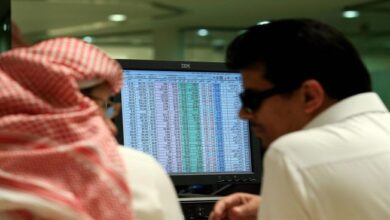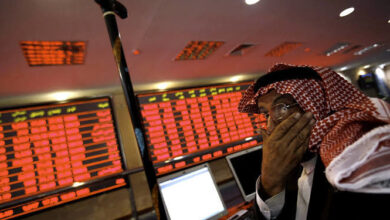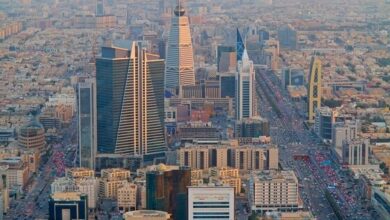Austerity measures reveal the truth of the reform allegations in the Kingdom

The unprecedented austerity measures announced by the Saudi regime exposed the truth of the allegations of reform and economic diversification that have been promoted by Crown Prince Mohammed bin Salman for years.
Observers confirm that the austerity measures have exposed the truth of Mohammed bin Salman’s allegations of reform and will show his failure to implement his promises and his vision for 2030.
The Saudi central bank’s foreign exchange reserves fell last March at the fastest rate in at least 20 years, hitting its lowest level since 2011, while the kingdom retreated to $9 billion in budget deficits in the first quarter as oil revenues collapsed.
The crisis in the Kingdom reveals the severity of Bin Salman’s policies and his involvement in wasting the Kingdom’s wealth after he wasted recent years with huge sums of money on trivialities such as the Riyadh entertainment season, in which spending amounted to 27 billion riyals.
Tweeter users criticized the fact that in the event of high revenues, they will be liquidated in the corruption of the citizen, and if the revenues decrease, the citizen will pay the price.
“Unfortunately we realized that we were spending money with no benefit, as we did not save the white shark for the black day, and even though the Coronavirus pandemic crisis did not pass until a few months ago, the kingdom’s crisis was revealed and its financial and economic weakness appeared,” the tweets note.
The Finance Minister of the Saudi regime, Muhammad Al-Jadaan, stated that the Kingdom will take “strict and painful” measures to deal with the effects of the Coronavirus, adding that “all options for dealing with the crisis are currently open.”
Al-Jadaan stressed that “we must reduce the budget expenditures sharply.” The minister did not mention details of possible measures, noting that the impact of the Coronavirus pandemic on the Kingdom’s public finances will start to appear from the second quarter, adding that the finance still needs greater control to meet the challenges.
The Kingdom suffers from a historical decline in crude prices, while measures to reduce the outbreak of the Coronavirus will likely reduce the frequency and scale of the economic “reforms” that bin Salman launched.
In March, the foreign exchange reserves of the Saudi central bank tumbled at the fastest pace in at least two decades, to reach the lowest level since 2011, while the kingdom recorded a deficit of nine billion in the first quarter of the year, due to the collapse of oil revenues.
Al-Jadaan said that the withdrawal from the Kingdom’s cash reserves during the current year should not exceed between 110 ($29 billion) and 120 billion riyals, i.e. within the scope of what is expected in the budget, adding that the Kingdom “has taken incentive measures aimed at preserving jobs in the private sector , And to ensure continued access to basic services.”
Al-Jadaan had said earlier that Riyadh may borrow an additional 26 billion dollars this year, and will withdraw approximately 32 billion dollars from its reserves to finance the deficit.
This comes as Moody’s credit ratings agency modified its future outlook for Saudi rating from “stable” to “negative”.
In the first change of the Kingdom’s credit rating prospects in four years, Moody’s adjusted its future outlook for the Kingdom’s rating from “stable” to “negative”, but maintained its rating at “any one” (A1), which is the fifth highest credit score.
The agency added in a statement that the collapse of oil prices due to the Corona pandemic had increased financial risks to Saudi Arabia, and would erode its sovereign financial reserves.
She said that the severe shock caused by the decline in oil prices will lead to an increase in Saudi debt to about 45% of GDP in the medium term.
Moody’s stated that the expectations indicate a decrease in government revenues for the Kingdom by about 33% during the current year, and by about 25% during the next year, compared to its level in the past year.




